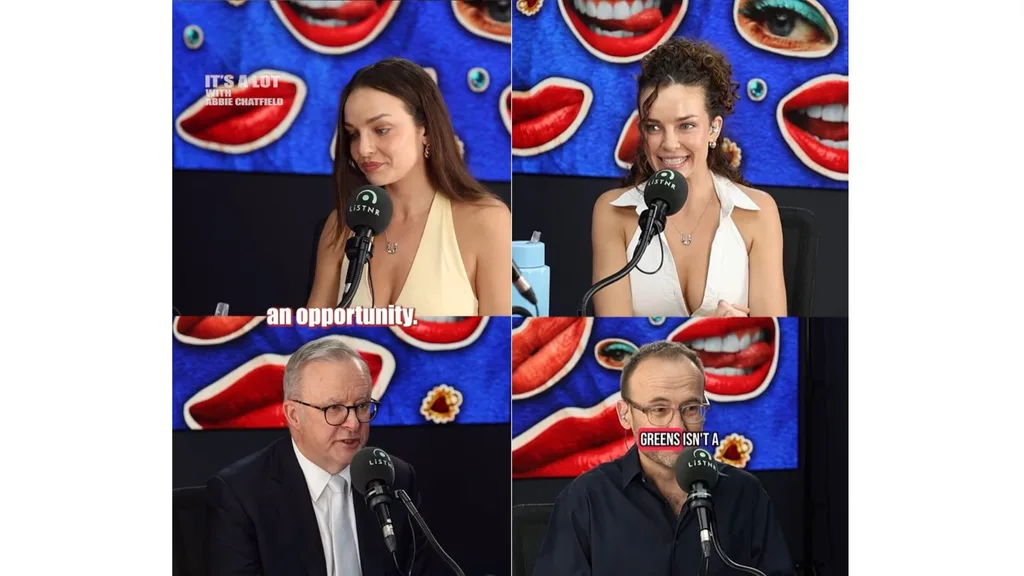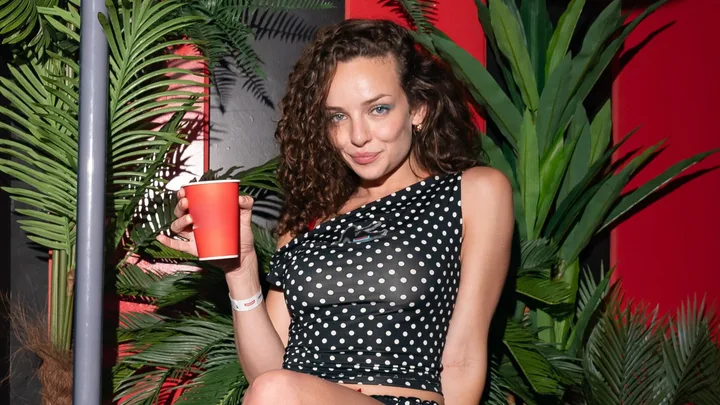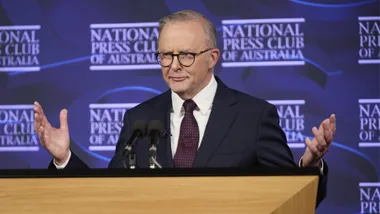In news that feels both extremely 2025 and yet somehow inevitable, Abbie Chatfield has caught the attention of the Australian Electoral Commission (AEC). Yes, the same AEC that oversees elections and ensures political advertising follows the rules is now reviewing posts from one of Australia’s most influential media personalities.
So, what exactly did Abbie do? She recently interviewed Prime Minister Anthony Albanese for her podcast It’s A Lot , and, as is standard practice, shared clips of their chat on social media to promote the episode.
As part of her content series, she also sat down with Greens leader Adam Bandt, and appeared alongside him at a Melbourne event called “Vote,” encouraging people to get involved in politics in the lead up to the federal election.
Pretty standard influencer-meets-politics content, right? Well, the AEC is investigating whether these related posts comply with electoral laws that require political messaging to be properly authorised.
Why Is This An Issue?

Australia has strict rules about political advertising, and the AEC wants to determine whether Chatfield’s posts fall under those guidelines. The concern is whether these interviews and endorsements – intentional or not – should have come with an official authorisation statement alongside them, the kind you usually see following traditional campaign ads.
The key question is whether the posts can be classified as news opinion from an independent content creator, or, if they should be interpreted as unpaid political promotions.
A spokesperson for the AEC has clarified that the review is simply about ensuring compliance with transparency laws. “The AEC will review these posts,” they shared. “When it comes to any content on social media, the AEC’s advice is always ‘if in doubt, authorise’.”
“We’d have to look and see whether content was being produced of the own volition of the person who’s the influencer or [if there] is another buying, potentially using that as advertising and promotional content,” per The Sydney Morning Herald.
Abbie Chatfield Responds
She’s made it clear that there was no financial agreement with either leader, and that she’d extended the same invitation to opposition leader, Peter Dutton as well – he just chose not to take her up on it.
In a statement shared with Pedestrian.TV, Chatfield clarified her stance: “I definitely was not paid by either party to create content,” she said.
“We were asking Bandt and Albanese for months to come on the podcast, and they had zero say in the content of the podcast or the posts I made.”
The influential media personality has consistently used her platform to highlight social issues and engage her followers in political discourse, so these interviews are hardly off brand for her. But as influencers play a bigger role in shaping public opinion, the legal landscape around political content is struggling to keep up.
The Bigger Picture: Legacy vs New Media
This whole situation is more than just a bureaucratic example, it speaks to a major shift in how Australians, and the public in general, consume and engage with political information.
Traditionally, politicians have relied almost solely on legacy media to get their message across. Now, they’re actively courting digital creators and new media influencers, recognising that platforms like Instagram and TikTok hold more power over Gen Z and Millennial voters than mainstream channels, and need to be part of the conversation.
Albanese and Bandt’s willingness to appear on a podcast like It’s A Lot (boasting 400,000 monthly downloads) shows how political messaging is evolving. But it also raises new questions: How can these new avenues be treated in line with traditional media outlets? How do electoral laws apply when political engagement is happening in casual, unscripted online spaces? And at what does it say about the politicians who don’t (or won’t) engage with the new direction?
What Happens Next?
Right now, the AEC’s review is just that – a review. They haven’t accused Chatfield of breaking any rules, and there’s no expectation that anything will come of it. But this case could set an important precedent for how influencers and political figures collaborate in the future.
One thing’s for sure: the digital sphere isn’t just a place for celebrity fan accounts and OOTDs anymore. It’s a battleground for political influence, and whether regulators and legacy media like it or not, the new wave of creators should be recognised as major players in the conversation.




